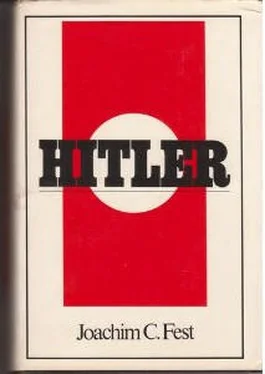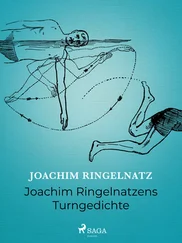Joachim Fest - Hitler
Здесь есть возможность читать онлайн «Joachim Fest - Hitler» весь текст электронной книги совершенно бесплатно (целиком полную версию без сокращений). В некоторых случаях можно слушать аудио, скачать через торрент в формате fb2 и присутствует краткое содержание. Город: New York, Год выпуска: 1974, ISBN: 1974, Издательство: A Harvest Book, Жанр: Биографии и Мемуары, на английском языке. Описание произведения, (предисловие) а так же отзывы посетителей доступны на портале библиотеки ЛибКат.
- Название:Hitler
- Автор:
- Издательство:A Harvest Book
- Жанр:
- Год:1974
- Город:New York
- ISBN:9780151416509
- Рейтинг книги:5 / 5. Голосов: 1
-
Избранное:Добавить в избранное
- Отзывы:
-
Ваша оценка:
- 100
- 1
- 2
- 3
- 4
- 5
Hitler: краткое содержание, описание и аннотация
Предлагаем к чтению аннотацию, описание, краткое содержание или предисловие (зависит от того, что написал сам автор книги «Hitler»). Если вы не нашли необходимую информацию о книге — напишите в комментариях, мы постараемся отыскать её.
Index. Translated by Richard and Clara Winston. A Helen and Kurt Wolff Book
Hitler — читать онлайн бесплатно полную книгу (весь текст) целиком
Ниже представлен текст книги, разбитый по страницам. Система сохранения места последней прочитанной страницы, позволяет с удобством читать онлайн бесплатно книгу «Hitler», без необходимости каждый раз заново искать на чём Вы остановились. Поставьте закладку, и сможете в любой момент перейти на страницу, на которой закончили чтение.
Интервал:
Закладка:
It is probable that after such a failure he shied away from the humiliation of going home to Linz, and above all of returning to his former school, the scene of his previous defeat. In perplexity, he stayed in Vienna for the present and evidently did not write a word home about his not being accepted. Even when his mother fell severely ill and lay dying, he did not venture to return. He did not go back to Linz until after his mother’s death on December 21, 1907. The family doctor who had treated his mother in her last illness declared that he had “never seen a young man so crushed by anguish and filled with grief.” According to his own testimony, he wept. For not only were his own hopes shattered, but he had now to face alone, without help, the shock of disenchantment. The experience intensified his already pronounced tendency to keep to himself and to indulge in self-pity. With the death of his mother whatever affection he had ever had for any human being came to an end—except one later emotional tie, again linked to a close relative.
Possibly his mother’s death reinforced his intention to return to Vienna. The eighteen-year-old boy’s decision to go back to the city that had rejected him, to try again to find his way and his opportunities there, testifies equally to his determination and to his desire to escape into anonymity from the inquiring looks and admonitions of his relatives in Linz. Moreover, in order to qualify for his orphan’s pension he had to give the impression that he was engaged on a formal course of studies. Consequently, as soon as the formalities and legal questions were settled, he called on his guardian, Mayor Mayrhofer, and declared—“almost defiantly,” as the mayor afterward reported—“Sir, I am going to Vienna.” A few days later, in the middle of February, 1908, he left Linz for good.
A letter of recommendation gave him new hope. Magdalena Hanisch, the owner of the house in which his mother had lived until her death, had connections with Alfred Roller, one of the best-known stage designers of the period, who worked at the Hofoper and also taught at the Vienna Academy of Arts and Crafts. In a letter dated February 4, 1908, she asked her mother, who was living in Vienna, to arrange for Hitler to meet Roller. “He is an earnest, aspiring young man,” she wrote, “nineteen years old, more mature and sedate than his years warrant, pleasant and steady, from a very honorable family…. He has the firm intention of learning something substantial. As far as I know him now, he will not ‘loaf,’ since he has in mind a serious goal. I trust you will not be interceding for someone unworthy. And you may well be doing a good deed.”
Only a few days later the answer came that Roller was prepared to receive Hitler, and the Linz landlady thanked her mother in a second letter: “You would be rewarded for your pains if you could have seen the young man’s happy face when I had him summoned here…. I gave him your card and let him read Director Roller’s letter! Slowly, word for word, as though he wanted to learn the letter by heart, as if in reverence, with a happy smile on his face, he read the letter quietly to himself. Then, with fervent gratitude, he laid it down in front of me. He asked me whether he might write you to express his thanks.”
Hitler’s own letter, dated two days later, has also been preserved. It is composed in labored imitation of the elaborate style of Imperial Austrian bureaucrats:
Herewith, esteemed and gracious lady, I wish to express my sincerest gratitude for your efforts in obtaining access for me to the great master of stage decoration, Prof. Roller. It was no doubt somewhat overbold of me, Madam, to make such excessive demands upon your kindness, since you after all had to act in behalf of a perfect stranger. All the more, therefore, must I ask you to accept my sincerest thanks for your undertakings, which were accompanied by such success, as well as for the card which you so kindly placed at my disposal. I shall at once make use of this fortunate opportunity. Once again my deepest gratitude. I respectfully kiss your hand.
Sincerely yours, Adolf Hitler. 17The recommendation seemed to open the way for him to enter his dream world: the free life of an artist; music and painting combined in the grand pseudo-world of opera. But there is no indication of how the meeting with Roller came out. The sources are silent. Hitler himself never said a word about it. It seems most likely that the famous man advised him to work, to learn, and in the autumn to apply once more for admission to the Academy.
Hitler afterward called the following five years the worst of his life. In some respects they were also the most important. For the crisis of those years formed his character and provided him with those formulas for mastering fate to which he clung forever after. They became, in fact, so calcified within his mind that they account for the impression his life gives, despite his mania for mobility, of utmost rigidity.
Among the persisting elements of the legend that Hitler himself constructed over the carefully obscured trail of his life is the allegation that “necessity and harsh reality” formed the great and unforgettable experience of those years in Vienna: “For me the name of this Phaeacian city represents five years of hardship and misery. Five years in which I was forced to earn a living, first as a day laborer, then as a small painter; a truly meager living which never sufficed to appease even my daily hunger. Hunger was then my faithful bodyguard; he never left me for a moment….” 18However, careful calculation of his income has since shown that during the first period of his stay in Vienna, thanks to his share in his father’s inheritance, his mother’s legacy, the orphan pension, and without counting any earnings of his own, he had at his disposal between eighty and one hundred crowns a month. 19This was the monthly earnings of a junior magistrate at that time.
In the latter half of February August Kubizek came to Vienna, on Hitler’s urging, to study at the Conservatory of Music. Thereafter the two friends lived together in the rear wing of Stumpergasse 29, occupying a “dreary and wretched” room let to them by an old Polish woman named Maria Zakreys. But while Kubizek pursued his studies, Hitler continued the aimless idler’s life he had already become accustomed to. He was master of his own time, as he cockily stressed. Usually it was almost noon before he got up, sauntered in the streets or in the park at Schönbrunn, visited the museums, and at night went to the opera. There, during those years alone, he blissfully heard Tristan und Isolde thirty to forty times, as he afterward averred. Then again he would bury himself in public libraries, where, with the indiscriminateness of the self-educated, he read whatever his mood and the whim of the moment suggested. Or else he would stand in front of the pompous buildings on Ringstrasse and dream of even more monumental structures he himself would erect some day.
He gave himself up to such fantasies with almost maniacal passion. Until the small hours of the morning he would sit over projects to which he brought equal measures of practical incompetence, intolerance, and priggish conceit. “He could not let anything alone,” we are told. Because bricks, he decided, were “an unsolid material for monumental buildings,” he planned to tear down and rebuild the Hofburg. He sketched theaters, castles, exhibition halls; he developed a scheme for a nonalcoholic drink; he looked for substitutes for smoking or drew up plans for the reform of schools. He composed theses attacking landlords and officials, outlines for a “German ideal state,” all of which expressed his grievances, his resentments, and his pedantic visions. Although he had learned nothing and achieved nothing, he rejected all advice and hated instruction. Knowing nothing of composition, he took up an idea Richard Wagner had dropped, and began writing an opera about Wieland the Smith, full of bloody and incestuous nonsense. Despite his uncertain spelling he tried his hand as a dramatist, using themes from Germanic sagas. Occasionally, too, he painted; but the small water colors filled with finicky detail betrayed nothing of the forces raging in him. Incessantly, he talked, planned, raved, possessed by the urge to justify himself, to prove that he had genius. He concealed from his roommate his failure to pass the entrance examination at the Academy. When Kubizek occasionally asked him what he was doing so intensively day after day, he replied, “I am working on a solution to the wretched housing conditions in Vienna and carrying on certain studies to that end.” 20
Читать дальшеИнтервал:
Закладка:
Похожие книги на «Hitler»
Представляем Вашему вниманию похожие книги на «Hitler» списком для выбора. Мы отобрали схожую по названию и смыслу литературу в надежде предоставить читателям больше вариантов отыскать новые, интересные, ещё непрочитанные произведения.
Обсуждение, отзывы о книге «Hitler» и просто собственные мнения читателей. Оставьте ваши комментарии, напишите, что Вы думаете о произведении, его смысле или главных героях. Укажите что конкретно понравилось, а что нет, и почему Вы так считаете.





![Traudl Junge - Hitler's Last Secretary - A Firsthand Account of Life with Hitler [aka Until the Final Hour]](/books/416681/traudl-junge-hitler-s-last-secretary-a-firsthand-thumb.webp)






